The Equity & Inclusion Fellowship program supports the participation of students from traditionally underrepresented backgrounds at the Annual Fall Research Conference. This fellowship program aims to introduce recipients to the world of public policy and APPAM and foster a lifelong affiliation and engagement with both—special thanks to the Equity & Inclusion Fellowship Selection Committee for reviewing applications and selecting the recipients.
Congratulations to the 2025 Equity & Inclusion Fellowship recipients!
- Benedicta Agyare-Aggrey, University of Delaware
- Mariam Al-khafaji, Virginia Commonwealth University
- Mario Alberto Arce Acosta, University of California, Davis
- Elijah Bell-Clarke, California Baptist University
- Noelle Broughton, University of Kansas
- Allysha Bryant, Yeshiva University
- Sarah Buckmaster, Emory University
- Patricia Burgess, Seattle University
- Nike Campbell, Florida State University
- Tipeng Chen, Arizona State University
- Tong Chen, Rutgers University
- Juan Camilo Cristancho, University of California, Irvine
- Apu Deb, Florida International University
- Nikita Dhingra, Georgia State University
- Sky Duke, University of Wisconsin-Madison
- Zachariah Emmanuel, Georgia State University
- S. Mohsen Fatemi, University of Kansas
- Maribel Fernandez, New York University
- Morgan Gilmer, The University of North Carolina at Greensboro
- Anwesha Guha, University of Oregon
- Odia Kaba, The George Washington University
- Taehyun Kim, Ohio State University
- Sage Kime, University of California, Irvine
- Youngbin Lee, University of Missouri - Columbia
- Kejda Llana, University of Delaware
- Alagammai Meyyappan, The Pennsylvania State University
- Carlos Morales, Northwestern University
- Portia Nartey, Washington University in St. Louis
- Patricia Ng'ethe, Clemson University
- Seth Nwosu, Pepperdine University
- Sandra Okonofua, Yale University
- Nabila Parijat, University of Texas at Dallas
- Bilal Raza, University of Delaware
- Josefina Senese, Boston University
- Mohammad Newaz Sharif, University of Central Florida
- Prachi Shukla, Duke University
- Sheila Sjolseth, Auburn University
- Christian Sotomayor, University of California, Berkeley
- Ann Swanson, University of Wisconsin-Madison
- Olanrewaju Yusuff, Georgia State University
Benedicta Agyare-Aggrey
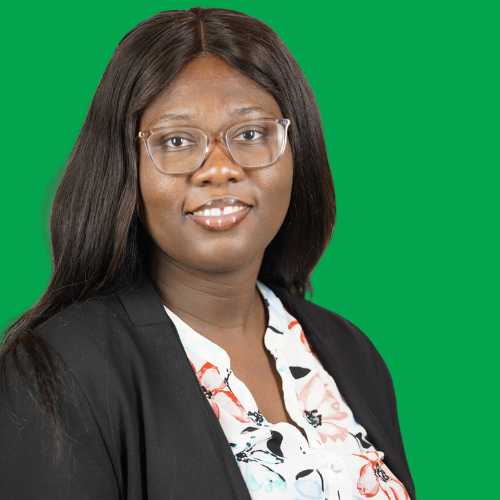 Benedicta Agyare-Aggrey is a third-year Ph.D. student in Public Policy and Administration at the Joseph R. Biden, Jr. School of Public Policy & Administration, University of Delaware. She also holds a Master of Public Administration (MPA) from Auburn University, where she graduated in 2023. Her research focuses on cross-sector collaboration, governance networks, and the role of nonprofit organizations in public service delivery. Her dissertation investigates how structural and relational dynamics within homelessness service networks influence client outcomes, emphasizing the critical role nonprofits play in coordinating and sustaining these systems. More broadly, her work engages questions of social equity in policy implementation and explores evidence-based strategies for strengthening the effectiveness and accountability of public and nonprofit programs. At the Biden School, Benedicta serves as a graduate teaching and research assistant, contributing to projects on rural community vitality and housing policy while supporting instruction in core areas of public administration. Her long-term goal is to pursue an academic career in public policy and administration, advancing research on governance networks while preparing future public service leaders. She is devoted to producing actionable knowledge that maintains equity, effectiveness, and accountability in U.S. service delivery systems.
Benedicta Agyare-Aggrey is a third-year Ph.D. student in Public Policy and Administration at the Joseph R. Biden, Jr. School of Public Policy & Administration, University of Delaware. She also holds a Master of Public Administration (MPA) from Auburn University, where she graduated in 2023. Her research focuses on cross-sector collaboration, governance networks, and the role of nonprofit organizations in public service delivery. Her dissertation investigates how structural and relational dynamics within homelessness service networks influence client outcomes, emphasizing the critical role nonprofits play in coordinating and sustaining these systems. More broadly, her work engages questions of social equity in policy implementation and explores evidence-based strategies for strengthening the effectiveness and accountability of public and nonprofit programs. At the Biden School, Benedicta serves as a graduate teaching and research assistant, contributing to projects on rural community vitality and housing policy while supporting instruction in core areas of public administration. Her long-term goal is to pursue an academic career in public policy and administration, advancing research on governance networks while preparing future public service leaders. She is devoted to producing actionable knowledge that maintains equity, effectiveness, and accountability in U.S. service delivery systems.
Mariam Al-khafaji
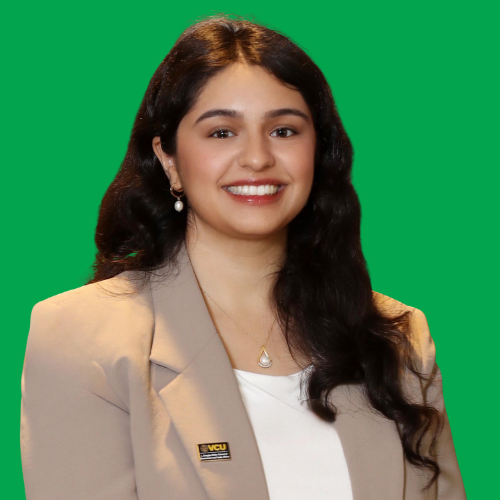 Mariam Al-khafaji is pursuing higher education at the L. Douglas Wilder School of Government and Public Affairs. She is passionate about advocating for marginalized and vulnerable populations through research, policy analysis, and evidence based data collection. She is a second-year MPA student and Wilder Fellow at the Research Institute for Social Equity (RISE).There, she has been involved in coordinating multiple focus groups and interviews as well as community-based research. She has presented work at the Social Equity Leadership Conference involving Arab American Muslim Mental Health. She is also a part of the 2025 ASPA Founders’ Fellows cohort and presented at their annual conference regarding how emotional labor affects local public servants, specifically crisis clinicians’ PSM levels. Additionally, Mariam is applying to PhD programs in hopes of teaching and mentoring future generations about the importance of being involved in mixed methods and how to make an impact in society, particularly with marginalized and vulnerable populations. Mariam is also interested in the Arab region and hopes to do field research in the Middle East, as she published a paper in her department’s journal in political science, on how low SES affects voter participation among Arab citizens.
Mariam Al-khafaji is pursuing higher education at the L. Douglas Wilder School of Government and Public Affairs. She is passionate about advocating for marginalized and vulnerable populations through research, policy analysis, and evidence based data collection. She is a second-year MPA student and Wilder Fellow at the Research Institute for Social Equity (RISE).There, she has been involved in coordinating multiple focus groups and interviews as well as community-based research. She has presented work at the Social Equity Leadership Conference involving Arab American Muslim Mental Health. She is also a part of the 2025 ASPA Founders’ Fellows cohort and presented at their annual conference regarding how emotional labor affects local public servants, specifically crisis clinicians’ PSM levels. Additionally, Mariam is applying to PhD programs in hopes of teaching and mentoring future generations about the importance of being involved in mixed methods and how to make an impact in society, particularly with marginalized and vulnerable populations. Mariam is also interested in the Arab region and hopes to do field research in the Middle East, as she published a paper in her department’s journal in political science, on how low SES affects voter participation among Arab citizens.
Mario Alberto Arce Acosta
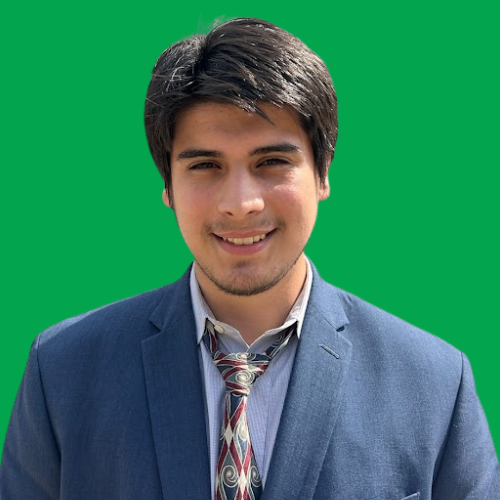 Mario is a Master's student in Statistics with a strong interest in applying modern statistical methods to immigration, economics, and higher education policy. Under Dr. Veronica Sovero's guidance, he is researching labor market conditions—specifically wage penalties and overqualification in occupational fields—for undocumented college graduates.
Mario is a Master's student in Statistics with a strong interest in applying modern statistical methods to immigration, economics, and higher education policy. Under Dr. Veronica Sovero's guidance, he is researching labor market conditions—specifically wage penalties and overqualification in occupational fields—for undocumented college graduates.
Elijah Bell-Clarke

Elijah Bell-Clarke is a Chief Performance Analyst with the City of Chicago and a Doctor of Public Administration (DPA) student at California Baptist University. Born in Waukegan, IL, and raised in DeSoto, TX, Elijah is a first-generation doctoral scholar whose personal and professional journey reflects a deep commitment to equity and public service.
He earned a Bachelor of Arts in Political Science from Morehouse College and a Master of Public Administration from Bowie State University. Over the past decade, Elijah has built a career advancing public sector innovation, policy design, and digital transformation across federal, state, and local levels.
Before joining the City of Chicago, Elijah served as a Senior Consultant, leading digital accessibility initiatives for the U.S. General Services Administration (GSA) and advising the Executive Office of the President’s Office of Science and Technology Policy Chief AI Officer Council on cross-agency AI governance, with a focus on generative AI, risk management, and procurement efforts. His earlier roles include advancing disability rights and compliance with the District of Columbia government, shaping workforce and education policy, and managing IT modernization projects for federal programs.
As a Black, gay, first-generation scholar, Elijah draws on lived experiences to inform his passion for inclusive governance. His research and practice center on how digital accessibility and artificial intelligence can expand public value, strengthen institutional performance, and improve service delivery for historically marginalized communities. Elijah strives to bridge scholarship and practice in ways that build trust and create more equitable outcomes.
Noelle Broughton
 Noelle Broughton is a PhD Candidate in the School of Public Affairs and Administration at the University of Kansas. She holds a Master of Public Affairs (MPA) from the O’Neill School of Public and Environmental Affairs at Indiana University–Purdue University Indianapolis (IUPUI). As a doctoral candidate, she has been awarded the Clifford Roberts Graduate Fellowship from the Eisenhower Institute and the University Graduate Fellowship from KU. Noelle’s research explores how fragmented governance structures shape housing policy design, implementation, and equity outcomes. Focusing on issues such as Housing Choice Vouchers, Source of Income (SOI) anti-discrimination policies, and tax foreclosure, her work examines the ways governance structures influence policy and their consequences for urban equity.
Noelle Broughton is a PhD Candidate in the School of Public Affairs and Administration at the University of Kansas. She holds a Master of Public Affairs (MPA) from the O’Neill School of Public and Environmental Affairs at Indiana University–Purdue University Indianapolis (IUPUI). As a doctoral candidate, she has been awarded the Clifford Roberts Graduate Fellowship from the Eisenhower Institute and the University Graduate Fellowship from KU. Noelle’s research explores how fragmented governance structures shape housing policy design, implementation, and equity outcomes. Focusing on issues such as Housing Choice Vouchers, Source of Income (SOI) anti-discrimination policies, and tax foreclosure, her work examines the ways governance structures influence policy and their consequences for urban equity.
Allysha Bryant
 Allysha Bryant, LMSW, CAPM, CASAC-T, is a PhD candidate at Yeshiva University’s Wurzweiler School of Social Work whose research examines mutual aid frameworks in Black communities, with a focus on sustainability, behavioral health, and disaster resilience. Grounded in a commitment to equity and community empowerment, her work explores how grassroots practices can inform policy and create lasting systemic change. She currently serves as Program Director of NY Connects Brooklyn at Presbyterian Senior Services, where she leads large-scale information and assistance operations, outreach, and public education initiatives. In this role, she manages program compliance, supervises staff and interns, and develops innovative outreach models that expand access to long-term services and supports for older adults, caregivers, and individuals with disabilities. Allysha is the founder of Fulcrum Community Partners LLC, an equity-centered consulting firm supporting nonprofits in program design, evaluation, and sustainability. She also contributes to the profession as an educator, adjunct instructor, and mentor, fostering leadership development among emerging social workers. An active member of the National Association of Social Workers and CSWE task forces, Allysha bridges research, practice, and policy. She is committed to advancing equity-driven solutions that strengthen communities and inform more just and inclusive public policies.
Allysha Bryant, LMSW, CAPM, CASAC-T, is a PhD candidate at Yeshiva University’s Wurzweiler School of Social Work whose research examines mutual aid frameworks in Black communities, with a focus on sustainability, behavioral health, and disaster resilience. Grounded in a commitment to equity and community empowerment, her work explores how grassroots practices can inform policy and create lasting systemic change. She currently serves as Program Director of NY Connects Brooklyn at Presbyterian Senior Services, where she leads large-scale information and assistance operations, outreach, and public education initiatives. In this role, she manages program compliance, supervises staff and interns, and develops innovative outreach models that expand access to long-term services and supports for older adults, caregivers, and individuals with disabilities. Allysha is the founder of Fulcrum Community Partners LLC, an equity-centered consulting firm supporting nonprofits in program design, evaluation, and sustainability. She also contributes to the profession as an educator, adjunct instructor, and mentor, fostering leadership development among emerging social workers. An active member of the National Association of Social Workers and CSWE task forces, Allysha bridges research, practice, and policy. She is committed to advancing equity-driven solutions that strengthen communities and inform more just and inclusive public policies.
Sarah Buckmaster
 Sarah Buckmaster is a Cultural Anthropology PhD student at Emory University and a Qualitative Research Analyst with Strategic Spartanburg. Her research and professional work sit at the intersection of anthropology, sociology, and policy, with a focus on race, class, housing, and equitable community development. At Emory, her scholarship examines how neighborhood transformation models, particularly Purpose Built Communities, shape race, class, and identity in the urban South. She is especially interested in how residents experience and interpret mixed-income housing and how their perspectives can inform more inclusive and sustainable development practices. At Strategic Spartanburg, Sarah contributes to applied research projects spanning housing, health, education, and workforce development, all with the goal of improving quality of life for Spartanburg County residents. Her projects have included ethnographic case studies, neighborhood assessments, and community-driven workshops on topics such as affordable housing, condemned properties, youth mental health disparities, and resident-led definitions of equity. She specializes in qualitative and mixed-methods research design, data visualization, and translating findings into actionable insights for policymakers and community leaders. Her commitment is to use research as a tool for equity, ensuring that resident voices shape the policies and programs that affect their lives.
Sarah Buckmaster is a Cultural Anthropology PhD student at Emory University and a Qualitative Research Analyst with Strategic Spartanburg. Her research and professional work sit at the intersection of anthropology, sociology, and policy, with a focus on race, class, housing, and equitable community development. At Emory, her scholarship examines how neighborhood transformation models, particularly Purpose Built Communities, shape race, class, and identity in the urban South. She is especially interested in how residents experience and interpret mixed-income housing and how their perspectives can inform more inclusive and sustainable development practices. At Strategic Spartanburg, Sarah contributes to applied research projects spanning housing, health, education, and workforce development, all with the goal of improving quality of life for Spartanburg County residents. Her projects have included ethnographic case studies, neighborhood assessments, and community-driven workshops on topics such as affordable housing, condemned properties, youth mental health disparities, and resident-led definitions of equity. She specializes in qualitative and mixed-methods research design, data visualization, and translating findings into actionable insights for policymakers and community leaders. Her commitment is to use research as a tool for equity, ensuring that resident voices shape the policies and programs that affect their lives.
Patricia Burgess
 Patricia Burgess, a Seattle native, serves as a Chief of Staff in the nonprofit sector, where she contributes her expertise in operational development, policy and process design, workplace culture, and leadership development. She is currently pursuing a Master’s in Public Administration with an emphasis in government at Seattle University, focusing on urban policy, housing, and racial equity. Patricia’s work is grounded in the belief that public service and intentional policy reform are essential tools for dismantling systemic inequities and advancing racial liberation. With a strong foundation in nonprofit leadership and lived experience navigating the impacts of inequitable policy, she is passionate about creating public policies that increase access to homeownership, promote economic mobility, and build generational wealth in Black and Brown communities. She envisions a future where equity is not aspirational but expected—and where government serves as a true catalyst for liberation and opportunity. Her commitment to justice, community voice, and transformative systems change fuels her dedication to shaping inclusive, equity-driven policy at the local, state, and federal levels.
Patricia Burgess, a Seattle native, serves as a Chief of Staff in the nonprofit sector, where she contributes her expertise in operational development, policy and process design, workplace culture, and leadership development. She is currently pursuing a Master’s in Public Administration with an emphasis in government at Seattle University, focusing on urban policy, housing, and racial equity. Patricia’s work is grounded in the belief that public service and intentional policy reform are essential tools for dismantling systemic inequities and advancing racial liberation. With a strong foundation in nonprofit leadership and lived experience navigating the impacts of inequitable policy, she is passionate about creating public policies that increase access to homeownership, promote economic mobility, and build generational wealth in Black and Brown communities. She envisions a future where equity is not aspirational but expected—and where government serves as a true catalyst for liberation and opportunity. Her commitment to justice, community voice, and transformative systems change fuels her dedication to shaping inclusive, equity-driven policy at the local, state, and federal levels.
Nike Campbell
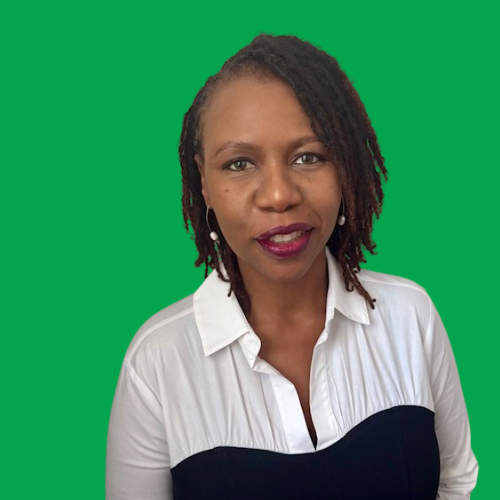 Nikẹ Campbell is a doctoral student at the Askew School of Public Administration and Policy, Florida State University. Her research interests include health and domestic violence intervention policies and their impacts on marginalized communities. Her current research focuses on the Hope card program and the impact administrative burdens have on intimate partner violence (IPV) rates in the United States. Her other research interests are in criminal justice reform, organizational change policies, effects on workplace culture, and gender disparities experienced by the workforce. Nikẹ has several years of work experience in budgeting, finance and grants management in state and local governments in Maryland, Virginia and Florida. She was the Fiscal Director at the State Attorney’s Office, 4th Judicial Circuit, Jacksonville Florida and prior to that, was the Budget Manager at the Office of the Sheriff, Prince George’s County, Maryland. She has also worked in administrative roles at American and Howard University, Washington DC and internationally in an executive role at a nonprofit organization devoted to values-based leadership training. She holds a Master of Arts degree in International Development from the School of International Studies, American University and a Bachelor of Arts degree in Economics from Howard University.
Nikẹ Campbell is a doctoral student at the Askew School of Public Administration and Policy, Florida State University. Her research interests include health and domestic violence intervention policies and their impacts on marginalized communities. Her current research focuses on the Hope card program and the impact administrative burdens have on intimate partner violence (IPV) rates in the United States. Her other research interests are in criminal justice reform, organizational change policies, effects on workplace culture, and gender disparities experienced by the workforce. Nikẹ has several years of work experience in budgeting, finance and grants management in state and local governments in Maryland, Virginia and Florida. She was the Fiscal Director at the State Attorney’s Office, 4th Judicial Circuit, Jacksonville Florida and prior to that, was the Budget Manager at the Office of the Sheriff, Prince George’s County, Maryland. She has also worked in administrative roles at American and Howard University, Washington DC and internationally in an executive role at a nonprofit organization devoted to values-based leadership training. She holds a Master of Arts degree in International Development from the School of International Studies, American University and a Bachelor of Arts degree in Economics from Howard University.
Tipeng Chen
 Tipeng Chen is a Ph.D. candidate in Public Administration and Policy at the School of Public Affairs and the Center for Science, Technology, and Environmental Policy Studies at Arizona State University. His research focuses on public management, organizational theory and behavior, citizen-state interaction, local government, and organizational adaptation to climate change. Tipeng’s current research project examines how public participation and community outreach influences public employees’ psychological states and behaviors, aiming to inform strategies and tactics that public organizations can adopt to foster meaningful community engagement while cultivating a resilient and motivated public workforce. His other research pipelines explore how public organizations respond to external uncertainties, such as climate change and advanced technologies, to ensure organizational survival, protect employees, and sustain public service delivery. These works provide practical implications for public managers on transforming organizational structures, mobilizing resources, adjusting strategies, and motivating employees to navigate complex environmental uncertainties effectively. Before joining ASU as a doctoral student in 2022, Tipeng earned both his master’s and bachelor’s degrees in public administration from Sun Yat-sen University.
Tipeng Chen is a Ph.D. candidate in Public Administration and Policy at the School of Public Affairs and the Center for Science, Technology, and Environmental Policy Studies at Arizona State University. His research focuses on public management, organizational theory and behavior, citizen-state interaction, local government, and organizational adaptation to climate change. Tipeng’s current research project examines how public participation and community outreach influences public employees’ psychological states and behaviors, aiming to inform strategies and tactics that public organizations can adopt to foster meaningful community engagement while cultivating a resilient and motivated public workforce. His other research pipelines explore how public organizations respond to external uncertainties, such as climate change and advanced technologies, to ensure organizational survival, protect employees, and sustain public service delivery. These works provide practical implications for public managers on transforming organizational structures, mobilizing resources, adjusting strategies, and motivating employees to navigate complex environmental uncertainties effectively. Before joining ASU as a doctoral student in 2022, Tipeng earned both his master’s and bachelor’s degrees in public administration from Sun Yat-sen University.
Tong Chen
 Tong Chen is a Ph.D. candidate in the School of Public Affairs and Administration (SPAA) at Rutgers University–Newark. His research covers AI governance, public corruption, and social media engagement. Specializing in machine learning and artificial intelligence (AI), he has developed innovative approaches to explore underexamined areas by overcoming data limitations. Before pursuing his doctoral degree, Tong worked for many years as a financial analyst in the investment banking sector.
Tong Chen is a Ph.D. candidate in the School of Public Affairs and Administration (SPAA) at Rutgers University–Newark. His research covers AI governance, public corruption, and social media engagement. Specializing in machine learning and artificial intelligence (AI), he has developed innovative approaches to explore underexamined areas by overcoming data limitations. Before pursuing his doctoral degree, Tong worked for many years as a financial analyst in the investment banking sector.
Juan Camilo Cristancho
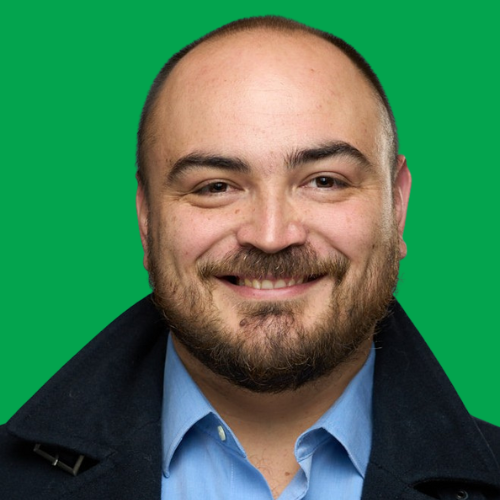 Juan Camilo Cristancho is a Colombian Ph.D. candidate in Education (Educational Policy and Social Context) at the University of California, Irvine. Juan Camilo's research focuses on early childhood development and education in global contexts, particularly how exposure to community violence shapes children's cognitive and socioemotional outcomes. He also examines the development and evaluation of targeted education policies for early childhood and school-aged children. His work has been published in Child Development, the Journal of Youth and Adolescence, and other peer-reviewed journals. Prior to his doctoral studies, Juan Camilo worked as a researcher at Universidad de los Andes in Bogotá, Colombia, and served as a consultant for the Inter-American Development Bank and other institutions, designing and implementing evaluations for social policies. He holds bachelor's and master's degrees in economics, as well as a master's degree in public policy, all from Universidad de los Andes.
Juan Camilo Cristancho is a Colombian Ph.D. candidate in Education (Educational Policy and Social Context) at the University of California, Irvine. Juan Camilo's research focuses on early childhood development and education in global contexts, particularly how exposure to community violence shapes children's cognitive and socioemotional outcomes. He also examines the development and evaluation of targeted education policies for early childhood and school-aged children. His work has been published in Child Development, the Journal of Youth and Adolescence, and other peer-reviewed journals. Prior to his doctoral studies, Juan Camilo worked as a researcher at Universidad de los Andes in Bogotá, Colombia, and served as a consultant for the Inter-American Development Bank and other institutions, designing and implementing evaluations for social policies. He holds bachelor's and master's degrees in economics, as well as a master's degree in public policy, all from Universidad de los Andes.
Apu Deb

Apu Deb is a Ph.D. Candidate in Public Affairs at Florida International University. He completed Master of Public Affairs (MPA) from the University of Texas Rio Grande Valley. He also earned Master of Social Science (MSS) and Bachelor of Social Science (BSS) degree in Public Administration concentration from Shahjalal University of Science and Technology in Bangladesh. His research interest focuses on public budgeting and finance, climate policy, disaster management, sustainability, and transportation finance. Mr. Deb has published in leading journals including American Review of Public Administration, Journal of Sustainable Finance & Investment, Regional Sustainability. He has presented at the 2025 American Society for Public Administration (ASPA) Conference in Washington, DC, the 2024 Public Management Research Conference (PMRC) in Seattle, WA, and the 2022 ASPA Conference in Jacksonville, FL.
Nikita Dhingra
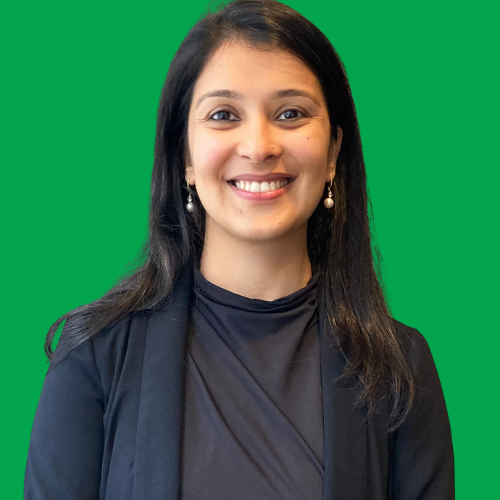
Nikita Dhingra is a fourth-year Ph.D. student in the Department of Economics at Georgia State University. Her research lies at the intersection of Health Economics, Environmental Economics, and Development Economics, with a particular focus on how external forces such as public policies, medical innovations, court rulings, and environmental conditions shape women’s health, labor market outcomes, and agency across both developed and developing countries.
Before beginning graduate school, Nikita worked as a development sector consultant in India, focusing on strengthening state capacity through public finance reforms and promoting financial inclusion via diverse social welfare programs. She also gained experience with India’s Telecom Regulatory Authority (TRAI) and the Ministry of Statistics and Programme Implementation (GOI), conducting econometric analyses, managing large datasets, and contributing to research and policymaking initiatives.
Passionate about addressing the developing world’s most pressing challenges through evidence-based policymaking, Nikita is motivated by the opportunity to apply economic theory to inform effective policies. Her research reflects a commitment to generating insights that can meaningfully improve lives in developing countries.
Beyond economics, Nikita is a fitness enthusiast who enjoys running, hiking, and boxing, as well as reading—particularly history, science, and geography—and is an avid movie buff.
Sky Duke
 Sky Duke is a third year doctoral student in Educational Policy Studies at the University of Wisconsin-Madison. As a McNair alum and current Educational Graduate Research Scholar, Sky strives to use her personal and educational privilege in service of those who face systemic alienation at institutions of higher education. Using critical quasi-experimental methods, her research focuses on postsecondary finance policies that promote equity and inclusion for marginalized student populations with an emphasis on college access and success among adult and low-income students. Sky's world view is shaped by her experiences as a disabled, White, low-income, and queer woman. Following her graduate studies, she plans to pursue a practice-oriented career outside of academia.
Sky Duke is a third year doctoral student in Educational Policy Studies at the University of Wisconsin-Madison. As a McNair alum and current Educational Graduate Research Scholar, Sky strives to use her personal and educational privilege in service of those who face systemic alienation at institutions of higher education. Using critical quasi-experimental methods, her research focuses on postsecondary finance policies that promote equity and inclusion for marginalized student populations with an emphasis on college access and success among adult and low-income students. Sky's world view is shaped by her experiences as a disabled, White, low-income, and queer woman. Following her graduate studies, she plans to pursue a practice-oriented career outside of academia.
Zachariah Emmanuel
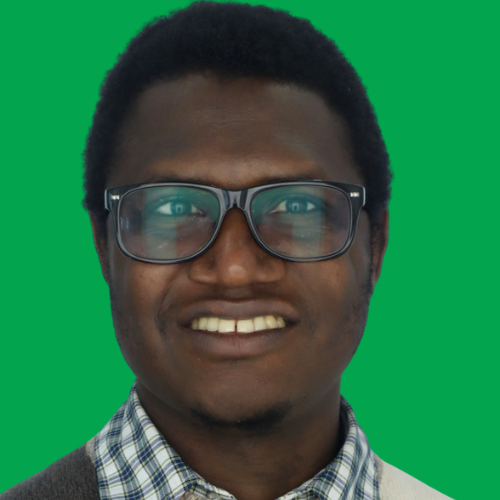 Zachariah Emmanuel is a Ph.D. student in Economics at the Andrew Young School of Policy Studies, Georgia State University. His primary research interests lie in health and labor economics, specifically examining how public policies affect health and education outcomes in the United States and Sub-Saharan Africa. Before enrolling in the Economics Ph.D. program at Georgia State University, Zachariah served as an Associate Lecturer at the Federal University Wukari in Nigeria. He was also a visiting Junior Research Fellow at the Centre for Econometric & Applied Research (CEAR) at the University of Ibadan. He earned his B.Sc. in Economics from the University of Jos, an M.Sc. from the University of Ibadan, and an M.A. in Economics from Georgia State University. Zachariah has received several awards and honors for his academic and research achievements, including the E.D. Jack Fellowship and Research Fund at Georgia State University, the Tony Elumelu Foundation prize, and the Chevron Nigerian University Merit Scholarship Award. Outside of his academic pursuits, Zachariah enjoys mentoring teenagers, helping them make informed choices and decisions in life.
Zachariah Emmanuel is a Ph.D. student in Economics at the Andrew Young School of Policy Studies, Georgia State University. His primary research interests lie in health and labor economics, specifically examining how public policies affect health and education outcomes in the United States and Sub-Saharan Africa. Before enrolling in the Economics Ph.D. program at Georgia State University, Zachariah served as an Associate Lecturer at the Federal University Wukari in Nigeria. He was also a visiting Junior Research Fellow at the Centre for Econometric & Applied Research (CEAR) at the University of Ibadan. He earned his B.Sc. in Economics from the University of Jos, an M.Sc. from the University of Ibadan, and an M.A. in Economics from Georgia State University. Zachariah has received several awards and honors for his academic and research achievements, including the E.D. Jack Fellowship and Research Fund at Georgia State University, the Tony Elumelu Foundation prize, and the Chevron Nigerian University Merit Scholarship Award. Outside of his academic pursuits, Zachariah enjoys mentoring teenagers, helping them make informed choices and decisions in life.
S. Mohsen Fatemi
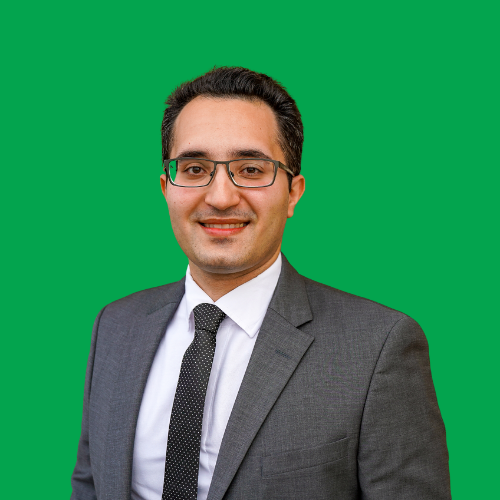 S. Mohsen Fatemi is a Ph.D. Candidate in Public Administration at the University of Kansas, specializing in energy governance, policy, and justice. His dissertation, "Toward a Theory of Energy Justice," introduces the Justility Index, a novel expert-weighted framework to measure justice-oriented utility behavior. Drawing on comparative policy analysis, causal discovery methods, and mixed-methods research, his work investigates how institutional, regulatory, and organizational factors shape equitable energy outcomes. Mohsen is a member of the Environmental Sustainability Advisory Board in Lawrence, Kansas, where his applied research informs local policy, including authoring a Rental Utility Bill Disclosure Ordinance proposal, currently under consideration in Lawrence. Mohsen has served as the Co-Director of the Public Management Research Association (PMRA), and his research has been recognized with awards, including the JPAE Spotlight Paper Award, Eisenhower/Roberts Graduate Fellowship, and the APPAM Equity and Inclusion Student Fellowship. His ongoing PA TIMES Online column, "Bedtime Stories for Public Servants," blends storytelling, reflective dialogue, and research-based insights to explore the ethical and emotional dilemmas faced in public service.
S. Mohsen Fatemi is a Ph.D. Candidate in Public Administration at the University of Kansas, specializing in energy governance, policy, and justice. His dissertation, "Toward a Theory of Energy Justice," introduces the Justility Index, a novel expert-weighted framework to measure justice-oriented utility behavior. Drawing on comparative policy analysis, causal discovery methods, and mixed-methods research, his work investigates how institutional, regulatory, and organizational factors shape equitable energy outcomes. Mohsen is a member of the Environmental Sustainability Advisory Board in Lawrence, Kansas, where his applied research informs local policy, including authoring a Rental Utility Bill Disclosure Ordinance proposal, currently under consideration in Lawrence. Mohsen has served as the Co-Director of the Public Management Research Association (PMRA), and his research has been recognized with awards, including the JPAE Spotlight Paper Award, Eisenhower/Roberts Graduate Fellowship, and the APPAM Equity and Inclusion Student Fellowship. His ongoing PA TIMES Online column, "Bedtime Stories for Public Servants," blends storytelling, reflective dialogue, and research-based insights to explore the ethical and emotional dilemmas faced in public service.
Maribel Fernandez
 Maribel Fernandez is a healthcare leader with more than 15 years of experience in compliance, regulatory affairs, and health insurance operations. She has worked extensively with managed care organizations, guiding teams through complex federal and state requirements and designing strategies that improve compliance, streamline processes, and support better outcomes for members and providers. Known for her ability to translate complicated regulations into practical solutions, she has helped organizations strengthen oversight while advancing efficiency and innovation. Maribel began her career in advertising and public relations, where she developed strong communication and stakeholder engagement skills that continue to shape her leadership approach. She has a track record of collaborating across departments to implement policy and operational changes that align with evolving healthcare standards. Currently, she is pursuing a Master of Public Administration in Health Policy and Management at NYU Wagner, with an expected graduation in 2026. She is passionate about advancing equity in healthcare and creating systems that center human well-being. She lives in New York City with her husband and three children.
Maribel Fernandez is a healthcare leader with more than 15 years of experience in compliance, regulatory affairs, and health insurance operations. She has worked extensively with managed care organizations, guiding teams through complex federal and state requirements and designing strategies that improve compliance, streamline processes, and support better outcomes for members and providers. Known for her ability to translate complicated regulations into practical solutions, she has helped organizations strengthen oversight while advancing efficiency and innovation. Maribel began her career in advertising and public relations, where she developed strong communication and stakeholder engagement skills that continue to shape her leadership approach. She has a track record of collaborating across departments to implement policy and operational changes that align with evolving healthcare standards. Currently, she is pursuing a Master of Public Administration in Health Policy and Management at NYU Wagner, with an expected graduation in 2026. She is passionate about advancing equity in healthcare and creating systems that center human well-being. She lives in New York City with her husband and three children.
Morgan Gilmer
 Morgan Gilmer (they/them) is a second year MS/PhD student in Human Development and Family Studies at UNC Greensboro. They study the ways in which neighborhood resources impact children's social and emotional skills. They focus particularly on the ways in which built and social factors in the environment work together to promote individual well-being and how this in turn cultivates a community-level sense of resilience among youth and families. Ultimately, they hope to guide policy into building better neighborhoods. They focus primarily in rural families and youth as an example of resiliency and community connection in the face of under-investment. Their thesis, which they will defend this year, seeks to understand how access to public place impacts adolescent well-being through the strengthening of neighborhood cohesion and whether these relationships are different depending on if youth live in rural census tracts.
Morgan Gilmer (they/them) is a second year MS/PhD student in Human Development and Family Studies at UNC Greensboro. They study the ways in which neighborhood resources impact children's social and emotional skills. They focus particularly on the ways in which built and social factors in the environment work together to promote individual well-being and how this in turn cultivates a community-level sense of resilience among youth and families. Ultimately, they hope to guide policy into building better neighborhoods. They focus primarily in rural families and youth as an example of resiliency and community connection in the face of under-investment. Their thesis, which they will defend this year, seeks to understand how access to public place impacts adolescent well-being through the strengthening of neighborhood cohesion and whether these relationships are different depending on if youth live in rural census tracts.
Anwesha Guha
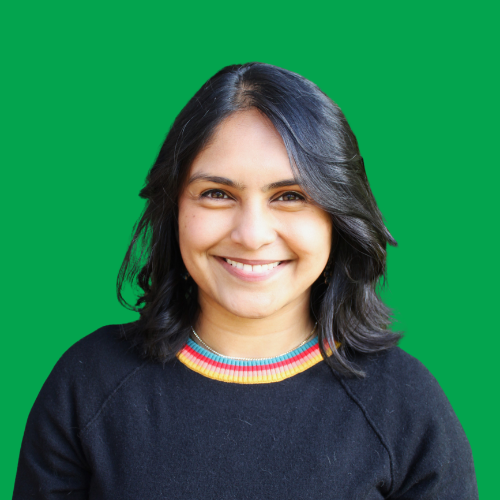 Anwesha Guha is a PhD candidate in the QRME program. She earned her bachelor’s degree (BS) in Quantitative Theory and Methods and English literature from Emory University. She then earned both her teaching licensure and her Master’s in Secondary Mathematics Education (MEd) from University of Missouri, St. Louis while teaching grades 9-12 algebra, ACT prep, and statistics. At the University of Oregon, Anwesha works with Dr. Keith Zvoch and the state department on the IES grant titled “A Study in Equity: Oregon’s Ninth Grade transition.” As an emerging scholar influenced by critical quantitative methodologies, Anwesha focuses her research on the transitions for at-promise students in secondary and post-secondary contexts, with a specific eye towards wellbeing, prevention, and policy. Her dissertation engages a variety of quantitative methods to facilitate more equitable retention outcomes for students with varying intersectional identities.
Anwesha Guha is a PhD candidate in the QRME program. She earned her bachelor’s degree (BS) in Quantitative Theory and Methods and English literature from Emory University. She then earned both her teaching licensure and her Master’s in Secondary Mathematics Education (MEd) from University of Missouri, St. Louis while teaching grades 9-12 algebra, ACT prep, and statistics. At the University of Oregon, Anwesha works with Dr. Keith Zvoch and the state department on the IES grant titled “A Study in Equity: Oregon’s Ninth Grade transition.” As an emerging scholar influenced by critical quantitative methodologies, Anwesha focuses her research on the transitions for at-promise students in secondary and post-secondary contexts, with a specific eye towards wellbeing, prevention, and policy. Her dissertation engages a variety of quantitative methods to facilitate more equitable retention outcomes for students with varying intersectional identities.
Odia Kaba
 Odia Kaba is a Ph.D. student in Public Policy and Public Administration at George Washington University, specializing in program evaluation with interests in health policy, and economic inequality. She holds a B.S. in Quantitative Economics from Eastern Michigan University. She is passionate about using data-driven analysis to inform equitable and impactful policy solutions. Outside of academics Odia enjoys basketball (Go Suns!), reading, and cooking.
Odia Kaba is a Ph.D. student in Public Policy and Public Administration at George Washington University, specializing in program evaluation with interests in health policy, and economic inequality. She holds a B.S. in Quantitative Economics from Eastern Michigan University. She is passionate about using data-driven analysis to inform equitable and impactful policy solutions. Outside of academics Odia enjoys basketball (Go Suns!), reading, and cooking.
Taehyun Kim
 Taehyun (Ethan) Kim is a Ph.D. student in Sociology at The Ohio State University. His research focuses on how families respond to changes in economic conditions and policy environments, particularly at the intersection of work, family, and social structure. He is especially interested in how labor market institutions and social policies influence family behaviors, fertility decisions, and intergenerational outcomes. His current work examines how labor market policies and family subsidies affect parental time use, the intra-household division of labor, and children's long-term human capital development. Using longitudinal data and causal inference methods, he investigates the demographic impacts of policy interventions and the broader mechanisms that shape family decisions and life course trajectories. Taehyun holds an M.S. in Economics from the Barcelona School of Economics (Universitat Pompeu Fabra) and dual bachelor’s degrees in Economics from Erasmus University Rotterdam and Sungkyunkwan University in South Korea.
Taehyun (Ethan) Kim is a Ph.D. student in Sociology at The Ohio State University. His research focuses on how families respond to changes in economic conditions and policy environments, particularly at the intersection of work, family, and social structure. He is especially interested in how labor market institutions and social policies influence family behaviors, fertility decisions, and intergenerational outcomes. His current work examines how labor market policies and family subsidies affect parental time use, the intra-household division of labor, and children's long-term human capital development. Using longitudinal data and causal inference methods, he investigates the demographic impacts of policy interventions and the broader mechanisms that shape family decisions and life course trajectories. Taehyun holds an M.S. in Economics from the Barcelona School of Economics (Universitat Pompeu Fabra) and dual bachelor’s degrees in Economics from Erasmus University Rotterdam and Sungkyunkwan University in South Korea.
Sage Kime
 Sage Kime is a second-year PhD student in Urban and Environmental Planning and Policy at the University of California, Irvine. Her research examines equity in the processes and outcomes of low-carbon energy transitions, with a focus on policy design, community participation, and just implementation. For her dissertation, Sage is evaluating whether policies that require community benefit agreements from energy developments effectively promote equitable benefit distribution, procedural justice, and local project acceptance. Sage holds a master’s degree from the Bren School of Environmental Science and Management at UC Santa Barbara (2022) and a B.A. in Environmental Studies from UC Santa Barbara (2018). Her master’s research involved a multidisciplinary review of metrics used to evaluate equity in energy transitions, laying the foundation for her continued interest in energy justice. Sage’s current research includes a case study of energy transition perceptions in a fossil fuel-dependent region of California, as well as a community-based project investigating air pollution in disadvantaged communities. As a scholar committed to bridging technical decarbonization solutions with community needs, Sage uses interdisciplinary, community-engaged methods to inform more just energy and climate policies. She is particularly interested in how participatory governance structures can improve policy equity, legitimacy, and implementation outcomes.
Sage Kime is a second-year PhD student in Urban and Environmental Planning and Policy at the University of California, Irvine. Her research examines equity in the processes and outcomes of low-carbon energy transitions, with a focus on policy design, community participation, and just implementation. For her dissertation, Sage is evaluating whether policies that require community benefit agreements from energy developments effectively promote equitable benefit distribution, procedural justice, and local project acceptance. Sage holds a master’s degree from the Bren School of Environmental Science and Management at UC Santa Barbara (2022) and a B.A. in Environmental Studies from UC Santa Barbara (2018). Her master’s research involved a multidisciplinary review of metrics used to evaluate equity in energy transitions, laying the foundation for her continued interest in energy justice. Sage’s current research includes a case study of energy transition perceptions in a fossil fuel-dependent region of California, as well as a community-based project investigating air pollution in disadvantaged communities. As a scholar committed to bridging technical decarbonization solutions with community needs, Sage uses interdisciplinary, community-engaged methods to inform more just energy and climate policies. She is particularly interested in how participatory governance structures can improve policy equity, legitimacy, and implementation outcomes.
Youngbin Lee
 Youngbin Lee is a doctoral candidate at the University of Missouri, specializing in public assistance programs for low-income households with children, with a focus on participation in the Special Supplemental Nutrition Program for Women, Infants, and Children (WIC). Her research examines administrative burdens and their effects on eligible families, particularly immigrant households and families with children. Before beginning her Ph.D., she earned a Master’s in Public Administration from Korea University and a Bachelor’s degree from Kyonggi University. From 2016 to 2020, she worked as a research assistant at the Institute for Welfare State Research in Korea, contributing to policy evaluations and studies on public assistance. Her dissertation applies mixed methods to explore how administrative burdens influence WIC participation. The first essay analyzes the experiences of immigrant mothers using focus group data and thematic analysis. The second essay uses Survey of Income and Program Participation data and a regression discontinuity design to examine how participation varies by income level. The third essay employs a randomized survey experiment to assess whether targeted information reduces learning costs and increases willingness to apply. Through this work, she aims to inform policies that reduce access barriers and improve the effectiveness of safety net programs for marginalized populations.
Youngbin Lee is a doctoral candidate at the University of Missouri, specializing in public assistance programs for low-income households with children, with a focus on participation in the Special Supplemental Nutrition Program for Women, Infants, and Children (WIC). Her research examines administrative burdens and their effects on eligible families, particularly immigrant households and families with children. Before beginning her Ph.D., she earned a Master’s in Public Administration from Korea University and a Bachelor’s degree from Kyonggi University. From 2016 to 2020, she worked as a research assistant at the Institute for Welfare State Research in Korea, contributing to policy evaluations and studies on public assistance. Her dissertation applies mixed methods to explore how administrative burdens influence WIC participation. The first essay analyzes the experiences of immigrant mothers using focus group data and thematic analysis. The second essay uses Survey of Income and Program Participation data and a regression discontinuity design to examine how participation varies by income level. The third essay employs a randomized survey experiment to assess whether targeted information reduces learning costs and increases willingness to apply. Through this work, she aims to inform policies that reduce access barriers and improve the effectiveness of safety net programs for marginalized populations.
Kejda Llana
 Kejda Llana is a Ph.D. candidate in Public Policy and Administration and a graduate research assistant at the Joseph R. Biden, Jr. School of Public Policy & Administration at the University of Delaware. She holds a Master of Science degree in Economics and Applied Econometrics from the Alfred Lerner College of Business and Economics at the University of Delaware. She is currently working as a research intern at the Federal Reserve Bank of Philadelphia’s Consumer Finance Institute (CFI). Her research interests lie in the areas of housing policy, education policy, consumer finance, and household finance. Her job market paper, “Building Futures: The Impact of Affordable Housing on Student Achievement” examines the effects of subsidized housing on the educational outcomes of school-aged children. She has presented at national conferences such as the Association for Public Policy Analysis and Management (APPAM), the Southern Economic Association (SEA), and the Association for Education Finance and Policy (AEFP).
Kejda Llana is a Ph.D. candidate in Public Policy and Administration and a graduate research assistant at the Joseph R. Biden, Jr. School of Public Policy & Administration at the University of Delaware. She holds a Master of Science degree in Economics and Applied Econometrics from the Alfred Lerner College of Business and Economics at the University of Delaware. She is currently working as a research intern at the Federal Reserve Bank of Philadelphia’s Consumer Finance Institute (CFI). Her research interests lie in the areas of housing policy, education policy, consumer finance, and household finance. Her job market paper, “Building Futures: The Impact of Affordable Housing on Student Achievement” examines the effects of subsidized housing on the educational outcomes of school-aged children. She has presented at national conferences such as the Association for Public Policy Analysis and Management (APPAM), the Southern Economic Association (SEA), and the Association for Education Finance and Policy (AEFP).
Alagammai Meyyappan
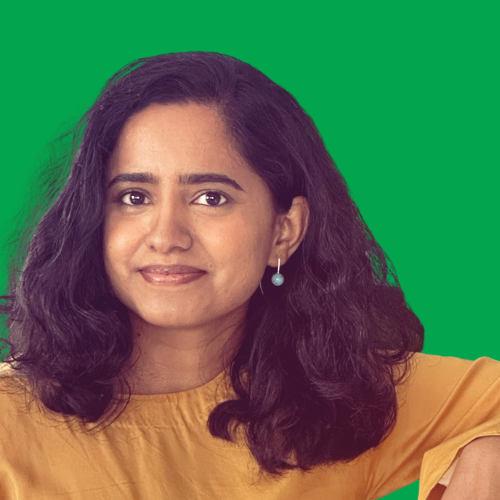 Alagammai is a doctoral student in Education Policy and Leadership at Penn State and is pursuing a minor in demography. She is from Tamil Nadu, India and draws on experiences that have widened her lens from classroom to school and community level engagement to now focusing on education policy. Alagammai is broadly interested in demographic patterns in access to education, policy impacts on access and outcomes, and barriers across the education pipeline that build into unequal chances in higher education, career, and life.
Alagammai is a doctoral student in Education Policy and Leadership at Penn State and is pursuing a minor in demography. She is from Tamil Nadu, India and draws on experiences that have widened her lens from classroom to school and community level engagement to now focusing on education policy. Alagammai is broadly interested in demographic patterns in access to education, policy impacts on access and outcomes, and barriers across the education pipeline that build into unequal chances in higher education, career, and life.
Carlos Morales

Carlos Morales is a first-generation Mexican American graduate student in public policy at Northwestern University, focusing on education equity and affordable housing reform. He works with the Illinois Student Assistance Commission, supporting low-income, immigrant, and first-generation families in navigating college access and financial aid, offering guidance in both English and Spanish.
Outside of work and school, Carlos serves on WBEZ’s Community Sounding Board and partners with grassroots organizations to advocate for climate and affordability justice. Whether in classrooms, community centers, or policy meetings, he remains committed to ensuring that the voices of working-class and immigrant families are included in critical conversations.
In his free time, Carlos enjoys going for walks, cheering on his favorite teams (“bear down!”), and appreciates the color green.
Portia Nartey
 Portia Nartey is a third-year PhD student in Social Work at Washington University in St. Louis. Her research focuses on designing, adapting, and testing culturally responsive interventions that address gender norms, poverty, and other multilevel factors that undermine the wellbeing of adolescent girls and young women in Sub-Saharan Africa. She is currently leading a study in Ghana that engages key stakeholders to adapt an economic empowerment intervention originally implemented in Uganda. Portia’s long-term goal is to advance evidence-based policies and programs that promote gender equity, education, and health among adolescent girls in low-resource settings.
Portia Nartey is a third-year PhD student in Social Work at Washington University in St. Louis. Her research focuses on designing, adapting, and testing culturally responsive interventions that address gender norms, poverty, and other multilevel factors that undermine the wellbeing of adolescent girls and young women in Sub-Saharan Africa. She is currently leading a study in Ghana that engages key stakeholders to adapt an economic empowerment intervention originally implemented in Uganda. Portia’s long-term goal is to advance evidence-based policies and programs that promote gender equity, education, and health among adolescent girls in low-resource settings.
Patricia Ng'ethe
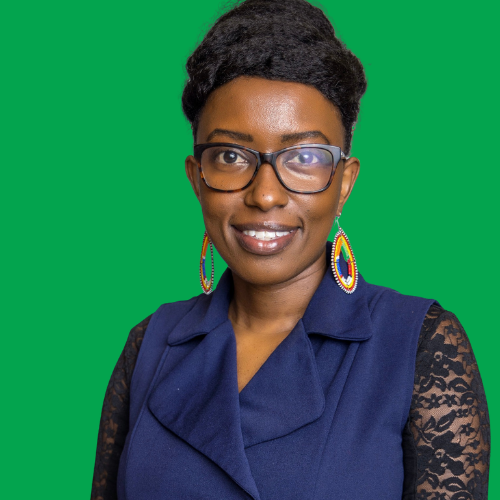 Patricia Ng’ethe is a doctoral student in the Policy Studies Program at Clemson University, focusing on Health Policy. Originally from the Rift Valley region in Kenya, her lived experience in a rural and underserved community inspired her passion for advancing gender equity and inclusion in rural and marginalized communities; specifically, among women and girls. Her research interest is in studying policy issues surrounding women’s health in rural areas, as well as gender representation. Her current research focuses on maternal health challenges facing mothers in marginalized and underserved areas. The goal of her research is to amplify marginalized voices, and to address structural barriers and systemic inequities in maternal health care access. Prior to joining Clemson University, Patricia worked in the area of transportation engineering and policy as an Engineering Program Specialist at the American Association of State Highway and Transportation Officials (AASHTO). She also served as Operations Director at the International Transformation Foundation in Kenya, where she led Water, Sanitation and Hygiene projects in rural primary schools and communities, in Kenya and Rwanda, lacking access to safe and reliable water, and hygiene facilities.
Patricia Ng’ethe is a doctoral student in the Policy Studies Program at Clemson University, focusing on Health Policy. Originally from the Rift Valley region in Kenya, her lived experience in a rural and underserved community inspired her passion for advancing gender equity and inclusion in rural and marginalized communities; specifically, among women and girls. Her research interest is in studying policy issues surrounding women’s health in rural areas, as well as gender representation. Her current research focuses on maternal health challenges facing mothers in marginalized and underserved areas. The goal of her research is to amplify marginalized voices, and to address structural barriers and systemic inequities in maternal health care access. Prior to joining Clemson University, Patricia worked in the area of transportation engineering and policy as an Engineering Program Specialist at the American Association of State Highway and Transportation Officials (AASHTO). She also served as Operations Director at the International Transformation Foundation in Kenya, where she led Water, Sanitation and Hygiene projects in rural primary schools and communities, in Kenya and Rwanda, lacking access to safe and reliable water, and hygiene facilities.
Seth Nwosu
 Mr. Seth Usifo Nwosu®, MLS, LDP, CP obtained his American Bar Association-Approved (ABA) Paralegal Certificate from Phoenix College, Phoenix, Arizona. He is qualified by the National Association of Legal Assistants (NALA) to provide Certified Paralegal (CP) services. As a CP, Mr. Nwosu is certified to practice as a Paralegal throughout the United States and Internationally. In addition, Mr. Nwosu is a Paralegal member of the ABA. Further, Mr. Nwosu is a Paralegal voting member of the NALA. Mr. Nwosu obtained his Master of Legal Studies (MLS) in Intellectual Property (IP) from Arizona State University - Sandra Day O'Connor College of Law (ASU Law). Through his attendance at ASU Law, Mr. Nwosu was chosen for the honor to study law abroad at Monash University - Prato Centre (Monash), in Prato, Italy. While in attendance at Monash, Mr. Nwosu studied (Current Issues in Indigenous Rights and International Law) and (Transnational Litigation) to sharpen his practice skills during the Summer 2019 academic semester. Mr. Nwosu obtained his Bachelor of Arts Degree in Political Science/Pre-law from Montclair State University (MSU) in Upper Montclair, New Jersey. Looking to make a difference for developing countries in IP practices that help their local businesses’ ability to succeed, Mr. Nwosu accepted an invitation from the UNIDROIT - International Institute for the Unification of Private Law and served as an Independent Researcher during the Spring 2021 academic semester in Rome, Italy. Beginning in the Fall of 2021, Mr. Nwosu began his matriculation at Pepperdine University - Graduate School of Education and Psychology (GSEP) as a Ph.D. student concentrating on Global Leadership and Change.
Mr. Seth Usifo Nwosu®, MLS, LDP, CP obtained his American Bar Association-Approved (ABA) Paralegal Certificate from Phoenix College, Phoenix, Arizona. He is qualified by the National Association of Legal Assistants (NALA) to provide Certified Paralegal (CP) services. As a CP, Mr. Nwosu is certified to practice as a Paralegal throughout the United States and Internationally. In addition, Mr. Nwosu is a Paralegal member of the ABA. Further, Mr. Nwosu is a Paralegal voting member of the NALA. Mr. Nwosu obtained his Master of Legal Studies (MLS) in Intellectual Property (IP) from Arizona State University - Sandra Day O'Connor College of Law (ASU Law). Through his attendance at ASU Law, Mr. Nwosu was chosen for the honor to study law abroad at Monash University - Prato Centre (Monash), in Prato, Italy. While in attendance at Monash, Mr. Nwosu studied (Current Issues in Indigenous Rights and International Law) and (Transnational Litigation) to sharpen his practice skills during the Summer 2019 academic semester. Mr. Nwosu obtained his Bachelor of Arts Degree in Political Science/Pre-law from Montclair State University (MSU) in Upper Montclair, New Jersey. Looking to make a difference for developing countries in IP practices that help their local businesses’ ability to succeed, Mr. Nwosu accepted an invitation from the UNIDROIT - International Institute for the Unification of Private Law and served as an Independent Researcher during the Spring 2021 academic semester in Rome, Italy. Beginning in the Fall of 2021, Mr. Nwosu began his matriculation at Pepperdine University - Graduate School of Education and Psychology (GSEP) as a Ph.D. student concentrating on Global Leadership and Change.
Sandra Okonofua

Sandra Okonofua is a PhD candidate in Sociology at Yale University whose dissertation examines fiscal bureaucrats—public sector professionals who manage organizational finances, navigate regulatory compliance, maintain stakeholder relationships, and exercise discretionary judgment in resource allocation decisions. Using education as a strategic case study, Sandra's research reveals how these largely invisible actors shape service delivery outcomes across the public sector.
Through ethnographic fieldwork and in-depth interviews with school business officials, Sandra has developed a theoretical framework examining how fiscal bureaucrats translate policy mandates into organizational practice, exercise discretion in resource allocation decisions, maintain stakeholder relationships, and develop professional identities within these constrained yet influential roles. This work bridges fiscal sociology, organizational theory, emotional labor theory and street-level bureaucracy scholarship to illuminate processes through which middle-management professionals mediate between policy intent and implementation reality.
During her doctoral studies, Sandra has worked as a policy analyst for the Mayor of New Haven, where she project-managed a $3 million city-wide initiative to address COVID-19 learning loss. Sandra holds a CAS in Adolescent Counseling and an EdM in Prevention Science and Practice from Harvard University, an M.S.Ed in Urban Education from the University of Pennsylvania, and an A.B in Psychology and Sociology from Dartmouth College.
Nabila Parijat

Nabila Parijat is a Ph.D. candidate and Teaching Associate in the Public and Nonprofit Management program at the University of Texas at Dallas. Her research focuses on public policy, program evaluation, and workforce diversity, with a dissertation examining how state-level management of skilled foreign-born human capital—specifically H1-B workers—contributes to innovation and economic development. Her work informs both policy and academic dialogue at a time when the future of high-skilled immigration is politically charged but economically vital.
Passionate about teaching, Nabila has served as an instructor for two undergraduate research design courses, making complex concepts accessible by drawing on her background and introducing students to cultural, social, political, and economic perspectives different from their own.
As a Bangladeshi-born scholar who earned her undergraduate degree abroad, Nabila brings valuable diversity to academia and public policy through her deep understanding of the challenges faced by individuals from underdeveloped countries in the United States. Currently on the academic job market, she is seeking Assistant Professor positions in public administration, public policy, political science, or related social science fields.
At APPAM 2025, Nabila looks forward to employment opportunities, collaboration, and mentorship and is eager to connect with scholars working in public policy and program evaluation.
Bilal Raza
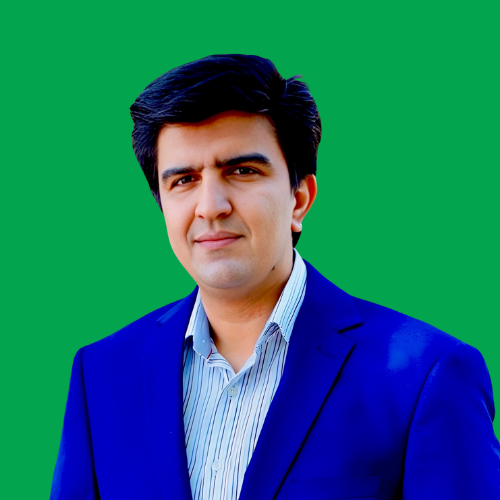
Bilal Raza is a Ph.D. candidate in Economics at the University of Delaware. He previously earned a BS in Economics from Quaid-i-Azam University and an MS in Economics from the Lahore University of Management Sciences. As an Erasmus Mundus scholar in the Master’s in Economic Policies in the Age of Globalization (EPOG) program, Bilal studied at Kingston University London, Sorbonne Paris North University, and the University of Massachusetts, Amherst.
Before beginning his Ph.D., Bilal worked for three years in the research department at the central bank of Pakistan, gaining valuable experience in economic policy and analysis. His doctoral research explores the labor market effects of early childhood care and education (ECE) policies, reflecting his broader interest in evidence-based solutions to economic and social challenges.
Bilal is currently on the job market, seeking research-focused roles that are both intellectually fulfilling and socially impactful.
Josefina Senese
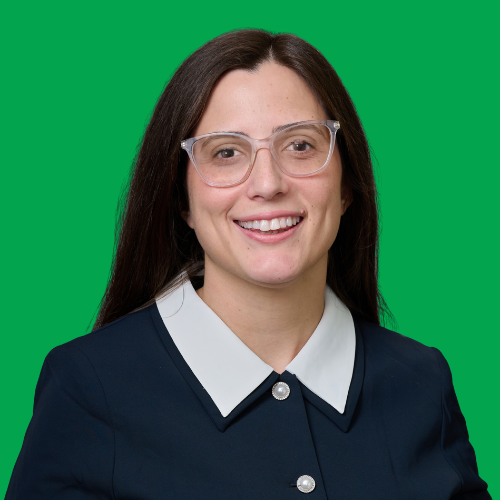
Josefina Senese is a Ph.D. student in Educational Policy Studies at Boston University. Her research focuses on school choice, special education, and English language development in the United States, with particular attention to how students with disabilities and English learners access services, navigate the public education system, and receive support across various types of schools.
Before joining Boston University’s Wheelock College of Education, Josefina served as a research consultant for the Institute for Educational Initiatives at the University of Notre Dame. She also worked in Washington, DC, for the Office of Learning and Impact at the Inter-American Foundation and The Trust for the Americas at the Organization of American States.
Josefina has been recognized with a Fulbright Scholarship, a Margaret McNamara Education Grant, an Alpha Delta Kappa International Teacher Education Scholarship, and a PEO International Peace Scholarship. She holds an MA in Global Affairs from the University of Notre Dame and a BA in International Studies from Universidad Torcuato Di Tella in Argentina.
Mohammad Newaz Sharif
 Mohammad Newaz Sharif is a doctoral student in Public Affairs at the University of Central Florida. At UCF, he currently serves as Graduate Teaching Associate for disaster management courses and as Research Assistant on several grant-funded projects, including the NSF-supported REACH Hub and nonprofit capacity building initiatives by the Center for Public and Nonprofit Management. His interdisciplinary scholarship draws on environmental science, public policy, and nonprofit studies with research interests spanning disaster response, inter-organizational networks, community resilience, and inclusive emergency planning. Newaz brings over a decade of international experience in humanitarian and development organizations, where he contributed to strategic planning, emergency response, program design and evaluation, and knowledge management across South and Southeast Asia. He holds master’s degrees in Public Policy, and Environmental Economics, and a bachelor in Environmental Science and Disaster Management. Newaz’s recent scholarly work explores themes such as community resilience, ethical dilemmas in emergency management education, mental health support for emergency responders, and nature based approaches to urban flood management. Through his research, teaching, and field engagement, he is committed to bringing a globally informed equity-centered lens to disaster governance towards building more responsive, resilient systems that reflect the needs of vulnerable communities.
Mohammad Newaz Sharif is a doctoral student in Public Affairs at the University of Central Florida. At UCF, he currently serves as Graduate Teaching Associate for disaster management courses and as Research Assistant on several grant-funded projects, including the NSF-supported REACH Hub and nonprofit capacity building initiatives by the Center for Public and Nonprofit Management. His interdisciplinary scholarship draws on environmental science, public policy, and nonprofit studies with research interests spanning disaster response, inter-organizational networks, community resilience, and inclusive emergency planning. Newaz brings over a decade of international experience in humanitarian and development organizations, where he contributed to strategic planning, emergency response, program design and evaluation, and knowledge management across South and Southeast Asia. He holds master’s degrees in Public Policy, and Environmental Economics, and a bachelor in Environmental Science and Disaster Management. Newaz’s recent scholarly work explores themes such as community resilience, ethical dilemmas in emergency management education, mental health support for emergency responders, and nature based approaches to urban flood management. Through his research, teaching, and field engagement, he is committed to bringing a globally informed equity-centered lens to disaster governance towards building more responsive, resilient systems that reflect the needs of vulnerable communities.
Prachi Shukla
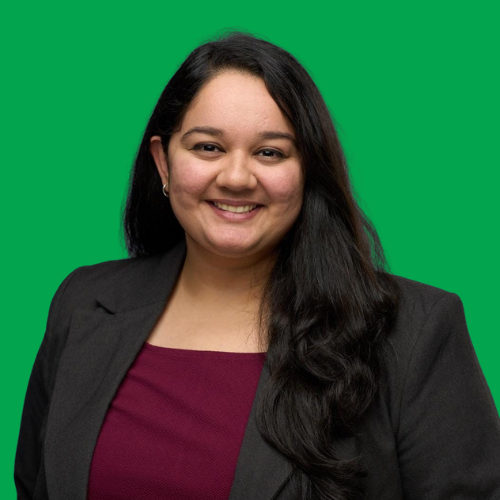
Prachi Shukla is a Ph.D. candidate at Duke University’s Sanford School of Public Policy. Originally from India, her research sits at the intersection of education policy, gender equity, and household decision-making. Her dissertation examines how large-scale public interventions—such as early childhood development programs, school infrastructure expansion, and legal reforms in women’s property rights—affect long-run educational and socioeconomic outcomes, particularly for girls from marginalized caste and religious communities. Her work blends rigorous causal methods with a focus on policy relevance, aiming to inform more inclusive and responsive governance.
Prior to graduate school, Prachi gained experience in research at the World Bank’s Development Impact Unit and the Jameel Poverty Action Lab (J-PAL), as well as in policy and development roles at Save the Children International, NITI Aayog (an Indian government think-tank), and the Reserve Bank of India.
Sheila Sjolseth
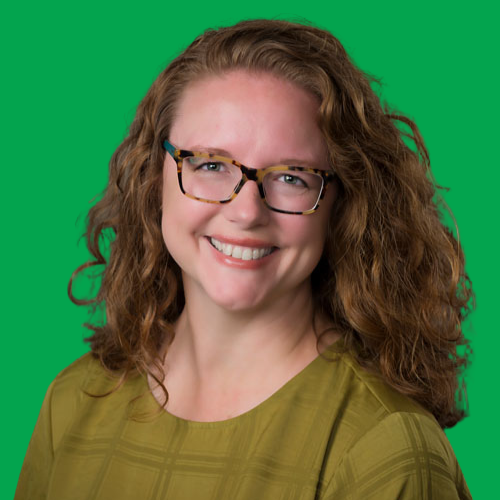 Sheila Sjolseth is a doctoral candidate in Human Development and Family Science at Auburn University, where her research focuses on families, child mental health, and caregiver experiences during critical health transitions. With over two decades of leadership and translational research experience, she bridges the gap between scholarship, policy, and practice by developing policies and approaches that elevate caregiver voices in systems of care. Her current study examines how caregivers navigate the transition from adolescent psychiatric hospitalization to home and school, with attention to disclosure decisions, systemic barriers, and the burdens families carry when institutional supports fail. At Auburn, Sheila received awards for academic excellence and service, including the Frank Sturm Memorial Fellowship and the Outstanding Doctoral Student Award. She contributes to Military REACH, an initiative that translates research into practical resources for military families. Beyond academia, she founded Pennies of Time, a volunteerism initiative engaging families in meaningful service. Sheila earned her Master of Education from the Harvard Graduate School of Education and a Bachelor of Science in Applied Learning and Development from the University of Texas at Austin, with a specialization in Special Education. She also holds graduate certificates in Health Equity, Education Equity, and Social and Emotional Learning.
Sheila Sjolseth is a doctoral candidate in Human Development and Family Science at Auburn University, where her research focuses on families, child mental health, and caregiver experiences during critical health transitions. With over two decades of leadership and translational research experience, she bridges the gap between scholarship, policy, and practice by developing policies and approaches that elevate caregiver voices in systems of care. Her current study examines how caregivers navigate the transition from adolescent psychiatric hospitalization to home and school, with attention to disclosure decisions, systemic barriers, and the burdens families carry when institutional supports fail. At Auburn, Sheila received awards for academic excellence and service, including the Frank Sturm Memorial Fellowship and the Outstanding Doctoral Student Award. She contributes to Military REACH, an initiative that translates research into practical resources for military families. Beyond academia, she founded Pennies of Time, a volunteerism initiative engaging families in meaningful service. Sheila earned her Master of Education from the Harvard Graduate School of Education and a Bachelor of Science in Applied Learning and Development from the University of Texas at Austin, with a specialization in Special Education. She also holds graduate certificates in Health Equity, Education Equity, and Social and Emotional Learning.
Christian Sotomayor
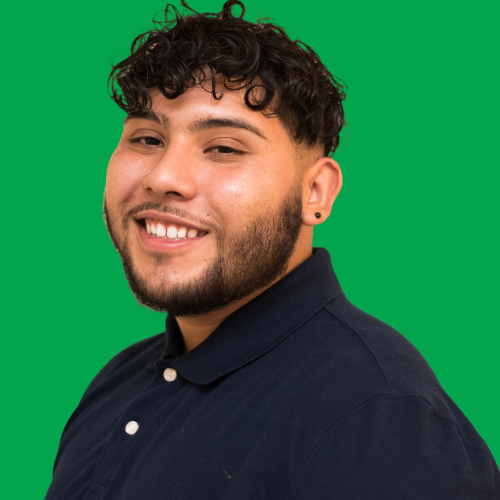 Christian Sotomayor is a Master of Public Policy candidate at the Goldman School of Public Policy at the University of California, Berkeley. He previously earned his B.A. from UC Berkeley with a double major in Political Science and Legal Studies and a minor in Public Policy. As a first-generation, low-income, Mexican-American and a former foster youth, Christian is deeply committed to advancing equity in child welfare, education, immigration, and criminal justice. Throughout his educational journey, Christian has served as a graduate student consultant, conducted research with the Transition-Age Youth Research and Evaluation Hub, and worked as a judicial intern at the San Francisco Superior Court. His policy experience includes internships with the Congressional Coalition on Adoption Institute and the Office of U.S. Representative Adam Schiff, and the California Department of Finance. Christian also brings legal experience from his work as a legal assistant at Toor Law, where he supported litigation in personal injury and civil cases.
Christian Sotomayor is a Master of Public Policy candidate at the Goldman School of Public Policy at the University of California, Berkeley. He previously earned his B.A. from UC Berkeley with a double major in Political Science and Legal Studies and a minor in Public Policy. As a first-generation, low-income, Mexican-American and a former foster youth, Christian is deeply committed to advancing equity in child welfare, education, immigration, and criminal justice. Throughout his educational journey, Christian has served as a graduate student consultant, conducted research with the Transition-Age Youth Research and Evaluation Hub, and worked as a judicial intern at the San Francisco Superior Court. His policy experience includes internships with the Congressional Coalition on Adoption Institute and the Office of U.S. Representative Adam Schiff, and the California Department of Finance. Christian also brings legal experience from his work as a legal assistant at Toor Law, where he supported litigation in personal injury and civil cases.
Ann Swanson
 Ann Shun Swanson is a first-year PhD student in Social Welfare at the University of Wisconsin-Madison. She specializes in child welfare and foster care research, with a focus on leveraging large-scale longitudinal administrative data to uncover patterns of cumulative adversity, map life trajectories, and identify opportunities for prevention and intervention along the child welfare continuum. As a survivor of childhood maltreatment, Ann embodies multiple underrepresented identities that deeply inform her scholarship. Having personally navigated the foster care system, Ann’s lived experiences provide a unique and deeply personal perspective that drive her commitment to reshape child welfare policies through rigorous, data-driven research. Her work aims to critically examine both the harms and essential functions of the child welfare system in order to promote equity and ensure that the wellbeing of system-involved youth remain at the center of policy discussions.
Ann Shun Swanson is a first-year PhD student in Social Welfare at the University of Wisconsin-Madison. She specializes in child welfare and foster care research, with a focus on leveraging large-scale longitudinal administrative data to uncover patterns of cumulative adversity, map life trajectories, and identify opportunities for prevention and intervention along the child welfare continuum. As a survivor of childhood maltreatment, Ann embodies multiple underrepresented identities that deeply inform her scholarship. Having personally navigated the foster care system, Ann’s lived experiences provide a unique and deeply personal perspective that drive her commitment to reshape child welfare policies through rigorous, data-driven research. Her work aims to critically examine both the harms and essential functions of the child welfare system in order to promote equity and ensure that the wellbeing of system-involved youth remain at the center of policy discussions.
Olanrewaju Yusuff
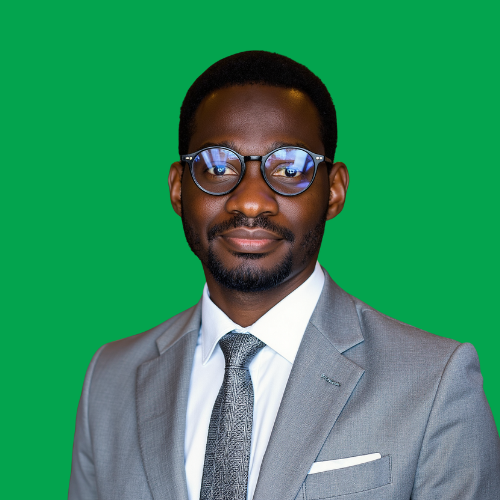 Olanrewaju Yusuff is a PhD candidate in Economics at Georgia State University, specializing in health, urban, and public economics. His research examines healthcare access and its economic implications for vulnerable populations, with particular focus on mental health treatment facilities, emergency medical services, and maternal healthcare. His job market paper investigates the health effects of geographic access to mental health treatment facilities. Originally from Nigeria, Olanrewaju earned his Bachelor of Science in Economics with First Class Honors from the University of Ibadan, where he subsequently worked as a Research Assistant at the Centre for Econometric and Allied Research. He holds a Master of Arts in Economics from Georgia State University and is currently completing his dissertation under Professor James Marton. As a first-generation college graduate, Olanrewaju brings unique perspectives to his research on health disparities and economic mobility. He has presented at major conferences, including the American Society of Health Economists and APPAM, with several papers under review. At Georgia State, he teaches Economics of Poverty and Public Policy, earning recognition for making complex economic concepts accessible to diverse student populations. Olanrewaju is a recipient of the Center for the Economic Analysis of Risk (CEAR) Fellowship at GSU's Robinson College of Business and participates in the Institute for Research on Poverty (IRP) Professional Development Training Series at the University of Wisconsin-Madison.
Olanrewaju Yusuff is a PhD candidate in Economics at Georgia State University, specializing in health, urban, and public economics. His research examines healthcare access and its economic implications for vulnerable populations, with particular focus on mental health treatment facilities, emergency medical services, and maternal healthcare. His job market paper investigates the health effects of geographic access to mental health treatment facilities. Originally from Nigeria, Olanrewaju earned his Bachelor of Science in Economics with First Class Honors from the University of Ibadan, where he subsequently worked as a Research Assistant at the Centre for Econometric and Allied Research. He holds a Master of Arts in Economics from Georgia State University and is currently completing his dissertation under Professor James Marton. As a first-generation college graduate, Olanrewaju brings unique perspectives to his research on health disparities and economic mobility. He has presented at major conferences, including the American Society of Health Economists and APPAM, with several papers under review. At Georgia State, he teaches Economics of Poverty and Public Policy, earning recognition for making complex economic concepts accessible to diverse student populations. Olanrewaju is a recipient of the Center for the Economic Analysis of Risk (CEAR) Fellowship at GSU's Robinson College of Business and participates in the Institute for Research on Poverty (IRP) Professional Development Training Series at the University of Wisconsin-Madison.
View 2025 Undergraduate Fellows | View 2025 Young Professionals Fellows